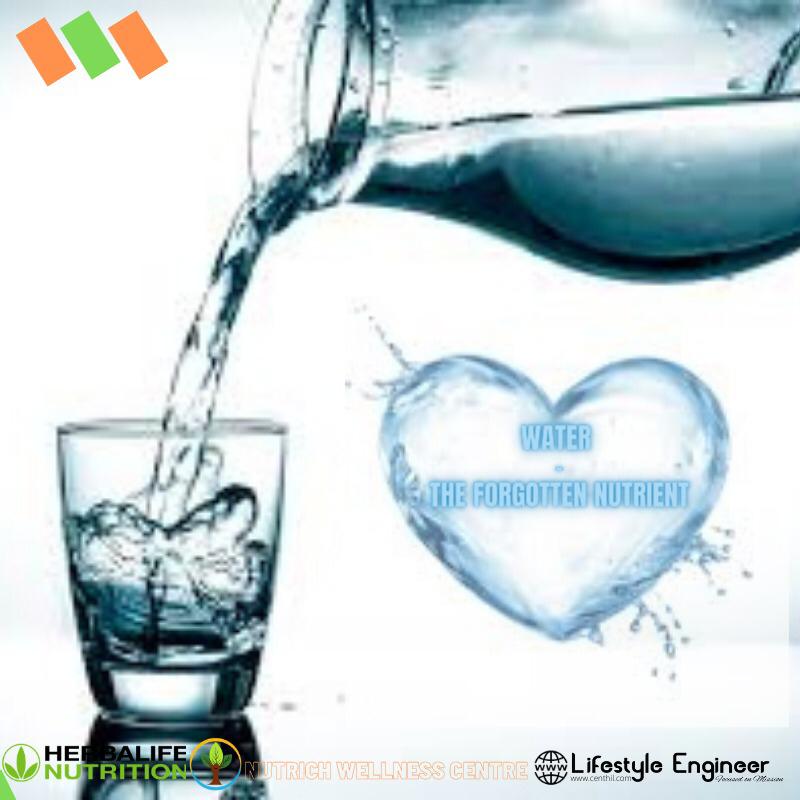WHAT IS WATER?
Water is one of the basic needs and is required by all life on earth to survive.
Water is not only the most important nutrient, but also it is the most abundant nutrient in the body. Because the water content of the body is approximately 65 to 75% for adults depending upon their body.
Infants and young children’s body contains more water (75%) than those of adults and are more vulnerable to dehydration.
No one can’t survive without water for very long, but the exact time you can live without water must varies. The water consumption also varies due to several reasons. This is because of,
• Environmental conditions
• Physical activity
• Age
• Health
• Weight
• Sex
• Intake of Food
For example, during hot climate, body will sweat more, that tends to more water consumption. Also during Exercise, more water consumption is needed for the body to hydrate. If you have Fever or Vomiting or Diarrhoea, then your body starts losing water more rapidly.
Why does Water Important?
Everyone knows water is important to their body. But Why? Because it is majorly necessary for
• Excreting waste from your body through perspiration, urination and defecation
• Regulating the body temperature
• Helps in metabolic functions
• Helps in digestion
• Preventing from dehydration that helps our skin to moisturize.
• Helps create saliva
• Protects your tissues, spinal cord, and joints
• Helps to maximize physical performance
• Prevents constipation
• Helps with nutrient absorption
• Helps to lose weight
• Aids in cognitive function
• It prevents overall dehydration.
• Improves blood oxygen circulation
RECOMMENDATIONS
The National Academies of Sciences, Engineering, and Medicine recommends that men consume 3.7 liters (15.5 cups) and women get 2.7 liters (11.5 cups) of fluids per day, which can come from water, beverages in general, and food (such as fruits and vegetables).
Where do we get water from?
You get some of the water in your body through the foods you eat. Some of the water is made during the process of metabolism. You also get water through liquid foods and beverages, such as soup, milk, tea, coffee, soda, drinking water, and juices.
Cucumber - 96% water
Cucumbers are made up of 96% water – which is the highest water content of any food. They’re also low in calories and a good source of vitamins and fibre.
Tomatoes - 95% water
Tomatoes are made up of 95% water. Tomatoes are also a good source of Vitamin A, which is important for keeping your skin, eyes and immune system healthy.
Spinach - 93% water
Spinach is made up of 93% water. It is also a good source of iron. Iron is essential for helping to transport oxygen around your body and for keeping your immune system healthy.
Mushrooms - 92% water
Mushrooms are made up of 92% water. They’re also a good source of Vitamin B2 (riboflavin), which is important for your skin and nervous system. Vitamin B2 also helps to reduce tiredness and release energy from the food that we consumed.
Watermelon - 91% water
Melon, a thirst-quenching summer favourite, is made up of 91% water. Melons are also low in calories and sugar and a source of Vitamin A, which helps to keep your eyes, skin and immune system in good working order.
Broccoli - 90% water
Broccoli contains 90% water. Broccoli also contains lots of important nutrients, including Vitamin K, Vitamin A, Iron, Calcium and Folic acid.
Brussel sprouts - 88% water
Brussel sprouts are made up of 88% water. It is a great source of folic acid (folate), which is essential for your body to make red blood cells, and important for the development of babies during pregnancy. Folic acid also helps your immune system to work well and reduces tiredness.
Oranges - 86% water
Oranges contain 86% water. It is a good source of Vitamin C. Vitamin C is an antioxidant which helps look after your muscles, bones, tendons, arteries and skin. It also helps your immune and nervous systems work properly and helps your body to absorb iron from the foods you eat.
Apples - 85% water
Apples contain 85% water, so it’s no wonder that an apple a day helps to keep the doctor away. There are thousands of different varieties of apples grown all over the world. They’re also low in calories, and a source of vitamins, fibre and antioxidants.
Blueberries - 84% water
Blueberries contains 84% water. It is a good source of fibre, vitamins and minerals. It is also a great source of antioxidants, which helps to protect your cells from being damaged.
Deficiency of water?
The deficiency of water in the body is called Dehydration. Dehydration occurs when the body loses more water than it takes in. Vomiting, diarrhea, excessive sweating, burns, kidney failure, and use of diuretics may cause dehydration.
Symptoms of deficiency from mild to severe conditions,
Thirst
Reduced sweating
Reduced skin elasticity
Reduced urine production
Dry mouth
In severe cases, shock and damage to internal organs
Very severe cases leads to coma


Useful information